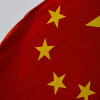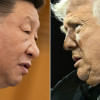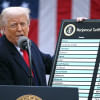Footwear exporters see opportunity in US tariffs

As the United States moves to impose reciprocal tariffs, concerns are mounting among Bangladeshi exporters, particularly in the footwear and pharmaceutical sectors, over potential implications for the country's trade prospects.
Industry leaders say Bangladesh, which depends heavily on the US market as a key export destination, could have prepared earlier to mitigate the fallout. In contrast, others remain cautiously optimistic that the impact may be less severe than feared.
The new tariff measures -- the full details of which are yet to be revealed -- have sparked urgent calls for the government to engage in proactive economic diplomacy and undertake long-overdue trade policy reforms to safeguard Bangladesh's competitive edge, especially at a time when global trade is already under pressure.
"The impact could be extremely serious. So, we need to engage and inform carefully," said Syed Nasim Manzur, managing director of Apex Footwear Ltd, a leading footwear exporter in Bangladesh.
He said the US was the fastest-growing destination for Bangladeshi footwear in fiscal year 2021-22 and is one of the single biggest markets for bags.
Manzur, also president of the Leathergoods and Footwear Manufacturers and Exporters Association, said the US has been talking about imposing reciprocal tariffs since January this year.
"Unfortunately, we were in a kind of comfort zone and have not taken any measures. But a major competitor of ours was following this and was taking actions to minimise the possible impact of US tariffs on its exports," he added. "We could have started preparations earlier as well."
He said Bangladesh's total tax incidence is one of the highest in the region, adding that it is high time for the country to rationalise import tariffs and para-tariffs, specifically supplementary duty.
Bangladesh's average duties on US imports currently stand at 54 percent, but the rate goes up to 528 percent in the case of products like luxury automobiles.
"We must engage with the US administration and explain our position. This is a time for economic diplomacy," he said. "We also need a clear roadmap with a short timeline for tariff rationalisation. In parallel, we must have clear plans to reduce the cost of doing business, and eliminating bureaucratic bottlenecks and corruption."
In a welcome move, the National Board of Revenue has already initiated discussions on the issue.
"So, we are happy to see that the government has announced that it is reviewing tariffs for US products," Manzur said.
Nasir Khan, managing director of Jennys Shoes Ltd, one of the country's leading footwear exporters, said the US accounts for nearly 19 percent of Bangladesh's total exports, making it a crucial destination for local manufacturers.
However, Bangladesh's imports from the US are relatively modest, standing at around $2 billion annually.
"If we reduce import tariffs on US products, it will not have a significant negative impact on us," Khan said. "On the contrary, if the US considers lowering tariffs on Bangladeshi exports, it could unlock fresh opportunities for our manufacturers."
While acknowledging that the non-leather footwear segment relies on the US market, he noted that it is not as exposed as other major export sectors.
"If the US market opens up further, some countries may face challenges due to competition from American goods. But for Bangladesh, it could actually turn out to be a strategic advantage," Khan added.
He stressed that the real determining factor will be how effectively the government handles the shifting trade landscape.
"With the right set of policies, Bangladesh can convert this challenge into an opportunity," he said, expressing confidence that the country's footwear exports would continue to perform strongly despite the changing tariff regime.
Abdul Muktadir, president of the Bangladesh Association of Pharmaceutical Industries, said a thorough assessment is required to determine the full impact of the tariffs.
"The announcement appears general, but the real implications will only be clear after sector-wise analysis," said Muktadir, also chairman and managing director of Incepta Pharmaceuticals Ltd.
He noted that full tariff details are yet to be published, leaving exporters uncertain about the changes affecting individual products.
"We will need to scrutinise tariff cards and other documents to pinpoint the affected items," he said, urging businesses to stay updated with developments from the US Treasury.
"If duties on key items like electrical products decrease, we could see immediate positive effects. Fortunately, essentials such as soybean and natural gas are already duty-exempt," Muktadir added.
The export of plastic and agro-processed products to the US will also be affected, according to Kamruzzaman Kamal, marketing director at Pran-RFL Group.
"The sudden increase in tariffs has significantly undermined our competitiveness in the US market. Our tariff rate has now risen to 37 percent while competitors like India face only around 27 percent. This disparity puts us at a serious disadvantage.
"Compared to competitor countries, we are now falling further behind," he said. "The higher tariff will restrict our access to the export market and make it increasingly difficult to sustain our business."
He warned that if the tariff is not reviewed through mutual understanding, the situation could deteriorate further, potentially leading to a significant decline in Bangladesh's market share.


 For all latest news, follow The Daily Star's Google News channel.
For all latest news, follow The Daily Star's Google News channel. 








Comments